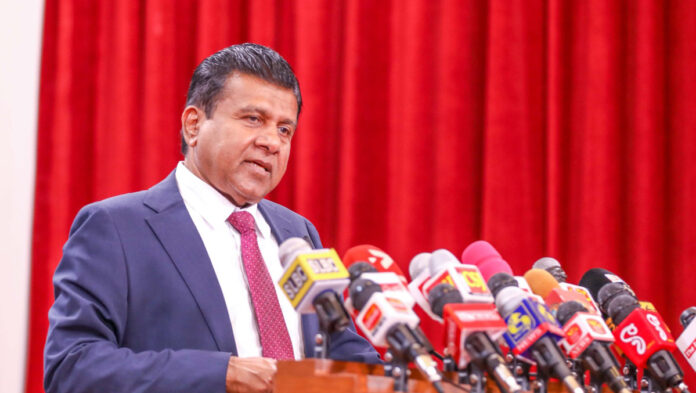[ad_1]
ECONOMYNEXT – Sri Lanka is planning to to set up an intermediate regulatory authority to determine whether or not a collateral of defaulted should be auctioned under parate execution powers, Justice Minister Wijedasa Rajapsaksa has said.
Under so-called parate execution powers, the Board of a bank decides to auctions assets of defaulted loans, usually after other methods of recovering loans fail.
“We believe that there should be an intermediate regulatory authority,” Minister Rajapaksa said.
“Therefore it is expected to bring an amendment to the parliament relating to this.”
The regulatory authority will give a “certificate” that it was reasonable to sell the pledged assets of a bad loans.
It will be given be examined whether the default was done willfully, or even if the loan could not be repaid, whether it could be restructured and a fresh loan given, and the business allowed to go forward after restructure or reasons like negligence was involved to protect banks.
Under the Mortgage Act, a court order is needed to recover assets, he said.
Bankers have warned that if parate powers are taken away, they will have to tighten rules to protect depositors and access to credit will be more difficult.
Minister Rajapaksa claimed that some banks were mis-using parate powers, without naming them.
The pressure to stop recoveries comes as bad loans in the banking system spiked to around 13 percent, following an economic crisis triggered by inflationary rate cuts enforced with liquidity tools of the central bank, which drove the country to the International Monetary Fund for the 17th time.
Minister Rajapaksa charged that some bankers were not “holy” and that they had other businesses, and they gave loans to competitors that they did not need and could not be paid back, and using parate powers bankrupted them.
He claimed that due to the central banks policy of boosting the balance sheets of banks, agriculture which was 14 percent of the gross domestic product was now down to 8 percent.
“On the other side, the industry which was 37 to 38 percent was down to 32 percent. In our country the services sector has only expanded. Services has grown to 60 percent.”
He claimed that India had similar problems to Sri Lanka in 1991 and had to go to the International Monetary Fund.
“India went to the IMF, but only once,” he said. “They got IMF help and built more than 400 billion dollars of reserves. We have gone to the IMF 16 times and is now going for the 17th time. Why can’t we rescue this small economy. That is because we have expanded the service sector.”
However according to published data India’s service sector which was 37 percent in 1990 has grown to 48.2 percent by 2022 and has been the main driver of growth.
India has also gone to the IMF 7 times until central bank reforms were made in 1991 and shifted to a different anchor. (Colombo/Feb28/2023)
[ad_2]
Source link


